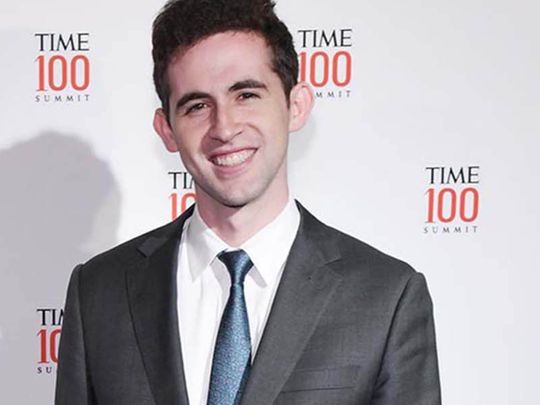
Let the curtain rise and bring on the farce: The American administration is staging a show where resolution of the Palestine conflict — possibly the most complex, not to mention the most intractable in the world — is reduced to an extravagant comedy of errors, a pastiche of vaudevillian humour and jejune opera bouffe. Belly laughs are guaranteed or your money back.
Last week, the White House appointed a boyish-looking, 30-year-old kid who graduated law school three years ago, and who clearly is yet to cut his teeth as a diplomat and foreign affairs expert, to be a Middle East “peace envoy”, part of the team tasked with implementing President Trump’s “deal of the century”, which has by now morphed into an exceedingly tiresome parody of what constitutes a peace process. In 2016, the kid, one Avi Berkowitz, had followed Jared Kushner to the White House as his adviser and will now replace Jason Greenblatt, another honcho on the team, who will be stepping down at the end of the month.
What the appointment of Berkowitz elicited in the American media was initial incredulity, followed by guffaws. For example, ‘Vanity Fair’ explained that “Trump’s news Mideast point man is Jared Kushner’s coffee boy Avi Berkowitz”, and New York, the Big Apple’s brash bi-weekly, snickered that “Trump somehow replaces unqualified Mideast envoy with an even less qualified one”. The only seal of approval Berkowitz received was given by (surprise, surprise!) The American-Israel Public Affairs Committee (AIPAC), Israel’s lobby in the US.
‘Tall order’
Berkowitz is cut from the same cloth as Kushner, Greenblatt and, lest we forget, David Friedman, America’s notoriously abrasive ambassador to Israel — all “nice Jewish boys” raised in Orthodox Jewish homes, all devoted to Israel, religiously, institutionally and ideologically, that is, to ‘Eretz Yisrael’, which holds that the whole of historic Palestine is a “God-given inheritance to the Jews”. (Palestinians are effectively squatters on the land.) All of them have, with no pretence at diplomatic niceties, Israel’s interests paramount on their minds and in their strategy.
Berkowitz spent two years in Israel studying at a Yeshiva, a secondary school whose focus is the study of traditional religious texts, where he was trained to believe that the West Bank was not the West Bank but Judea and Samaria. So now the kid will go from serving coffee, answering the phone and shepherding visitors around the White House to taking over the responsibilities of a peace envoy.
That’s not to hold a brief for Kushner, Greenblatt and Friedman. Kushner, who considers the idea of Palestinian statehood a “tall order”, wants to change the whole Palestinian narrative of a people yearning to be politically free to a people yearning to be economically secure. He was, you may recall, virtually laughed off the stage in Bahrain last June at the “Peace to Prosperity” conference after his presentation was likened by critics to a real estate brochure (Kushner comes from a background in real estate development), complete with glossy promotional photos that, bizarrely, showed how aid would go to projects that the administration had earlier cut funding for.
Strategic interests
Greenblatt, soon to depart the stage, is another piece of work. In a PBS interview on July 18, he said, and with a straight face, that Israel was the “victim” in its dispute with the Palestinians, rejected the term “occupied” to describe the West Bank, and berated the media for the “pejorative” term “settlements” when referring to the colonies Israel had built there, opting instead for “neighbourhoods” and “cities”.
As for Friedman, a bankruptcy lawyer who had raised millions each year to fund colonisation of Palestinian land and now is reincarnated as an American “ambassador” to Israel, recently asserted, choosing a pithy bon mot, that a Palestinian state is an “anachronism ... a solution in search of a problem”. The man is so clueless, so unschooled in the history of the region that, as he was being briefed by State Department officials about his duties as US ambassador, he reportedly evinced aggravation over why Egypt would not take in “all these Gazans”, since “they’re all Egyptians, and incredulity when told that most of “these Gazans” were Palestinian refugees, or the descendants of refugees from Mandate Palestine.
These folks do not come close to resembling even-handed mediators negotiating on behalf of a Big Power anxious to see peace and stability in the region, furthering its strategic interests there. They are rather Israel’s advocates, and they, as you can see, make no bones about it.
Were this risible story, at its core, not so sad, farceurs writing for, say, Saturday Night Live would have drawn on it for many a skit.
Fawaz Turki is a writer and lecturer who lives in Washington and the author of several books, including the Disinherited: Journal of a Palestinian Exile.









